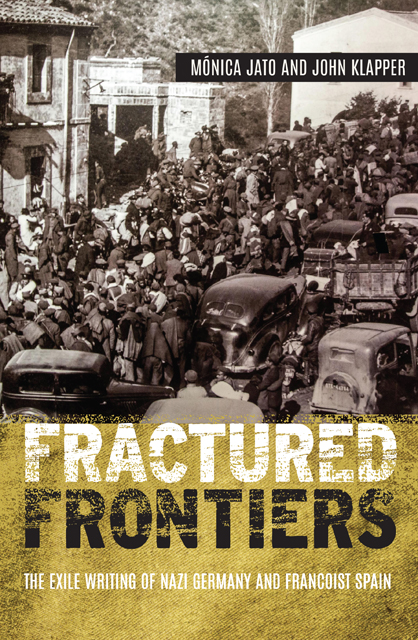2 - Exile: The Temptation of the Trope
Published online by Cambridge University Press: 18 January 2023
Summary
Having established in chapter 1 the historical and cultural context of our study of literary exile, we explore in this chapter the conceptual and terminological basis of the book, pointing to key parallels between the German and Spanish settings. After clarifying the many synonyms that have been applied to the concept of exile, the chapter discusses the historical reality of the phenomenon—not only in its territorial variant but also with reference to the controversial label “inner exile,” mindful of Sebastiaan Faber’s warning about the dangers of using “exile” in an exclusively figurative sense.
Rehistoricizing a Concept
“There are few situations like exile in which the trials of the human condition are presented as an initiation rite, as though one were initiating someone into adulthood.” Philosopher María Zambrano’s reflection, based on her own experience of living for more than twenty years far from Spain, points to the powerful figurative dimension of exile and how it expresses “the ambiguity of the human condition.” Its suprahistorical character, or—in the words of German exile Hilde Domin—its quality as an “exemplary expulsion,” teaches us “absolutely everything about being human, and about ‘being a fleeting guest.’” But it is precisely this symbolic dimension of exile and its existential implications that are the cause of its uncomfortable indeterminacy. There are few terms whose meaning and applicability are more difficult to define and delimit, and if we are to avoid explaining it every time it is used, we need to rehistoricize the concept.
The first to acknowledge this need was Paul Tabori in his landmark The Anatomy of Exile (1972). His initial working definition, the starting point for a survey of exiles and academics, was as follows:
An exile is a person compelled to leave or remain outside his country of origin on account of well-founded fear of persecution for reasons of race, religion, nationality or political opinion; a person who considers his exile temporary (even if it may last a lifetime), hoping to return to his fatherland when circumstances permit—but unable or unwilling to do so as the factors that made him an exile persist.
- Type
- Chapter
- Information
- Fractured FrontiersThe Exile Writing of Nazi Germany and Francoist Spain, pp. 46 - 76Publisher: Boydell & BrewerPrint publication year: 2020



